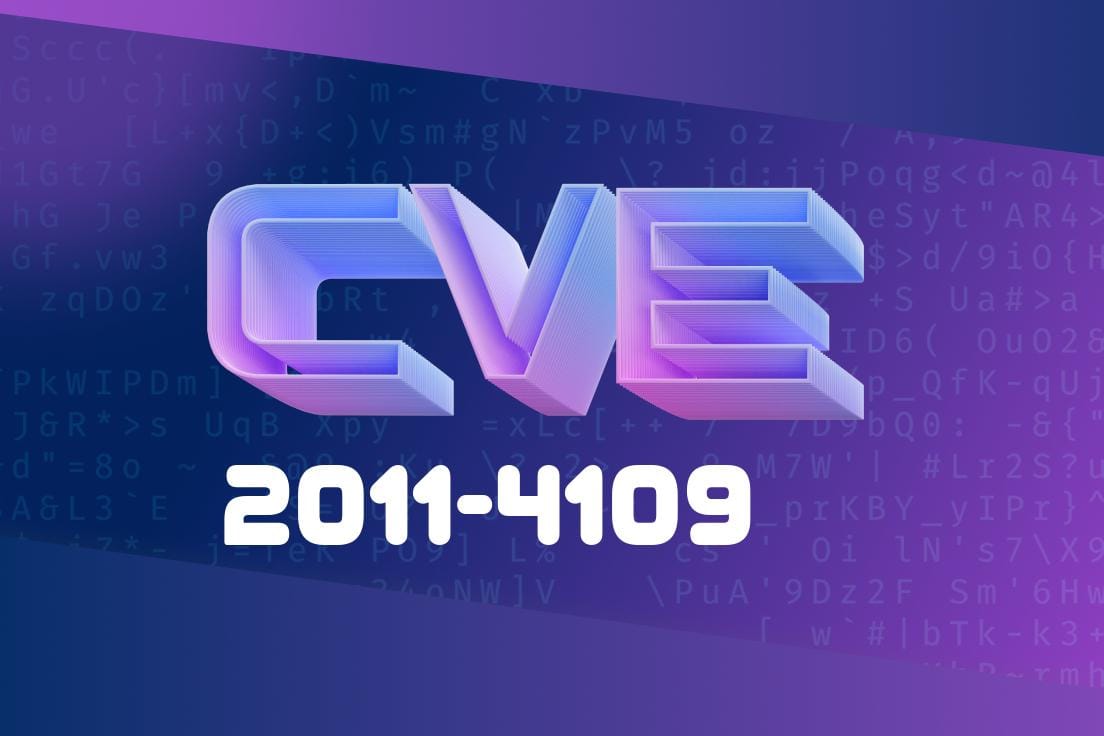---
Introduction
In the world of cryptography and security, OpenSSL is the backbone behind countless secure communications on the Internet. When a flaw is found in OpenSSL, it can lead to massive vulnerabilities across all sorts of systems. One such bug is CVE-2011-4109 – a “double free” vulnerability that could potentially let an attacker crash applications, or worse, execute arbitrary code in certain conditions, by exploiting certificate policy checks.
Let’s break down what this vulnerability means, how it works, what the risks are, and look at sample code illustrating the core problem. This article is crafted in friendly, plain language, with original references and code explanations.
Attack Vector: Remote
- Impact: Memory corruption (via double free), with unspecified security implications such as possible denial of service or code execution.
- Vulnerable Component: Policy checking in X.509 certificate validation when X509_V_FLAG_POLICY_CHECK flag is enabled
In short: If your system uses OpenSSL for certificate verification AND uses the X509_V_FLAG_POLICY_CHECK flag, an attacker might cause OpenSSL to free the same memory region twice, which can lead to severe security problems.
The Roots: What’s a Double Free Vulnerability?
When a program frees (or releases) a section of memory more than once (“double free”), it messes up the program’s management of memory, leading to unpredictable outcomes:
The application might crash (denial of service)
- It could potentially allow attackers to overwrite parts of memory, leading to arbitrary code execution
In cryptographic code like OpenSSL, these vulnerabilities can be quite severe.
The Role of X509_V_FLAG_POLICY_CHECK
OpenSSL allows applications to validate X.509 certificates (the kinds used in HTTPS). The X509_V_FLAG_POLICY_CHECK flag tells OpenSSL to check detailed certificate policies, beyond just verifying basic signatures.
The bug appears during this checking process in the affected OpenSSL versions. Bad handling of internal certificate policy data led to code that accidentally called the free() function on already-freed memory.
How an Attacker Exploits It
The attacker somehow supplies a crafted certificate chain (during SSL/TLS handshake) that fails the policy check, triggering OpenSSL’s vulnerable code path. This leads to a “double free” without further action from the attacker.
Depending on how OpenSSL is used (threading, malloc implementation, etc), this can either crash the process (denial of service), or (less commonly) open the door to attackers controlling execution flow of the program.
Code Snippet: The Core Bug
Let’s illustrate the main issue through a simplified code snippet. The real bug was in OpenSSL’s crypto/x509/x509_vfy.c, in its handling of policy nodes.
Note: Code here is for illustration, not cut-and-paste from the source tree.
// Original (vulnerable) code: double-free hazard
if (some_policy_check_fails()) {
// This releases memory previously allocated
OPENSSL_free(policy_cache);
// ... later in cleanup/error handling ...
OPENSSL_free(policy_cache); // Oops: double free!
}
What should have happened is either a check or a clear assignment to policy_cache after the first free, or simply never freeing it twice.
Real-World Exploitability
- Remote Attack: An attacker just needs to present a specially crafted certificate to a vulnerable OpenSSL server / client.
- Denial of Service: The most reliable and common outcome. Server or client process crashes with a memory corruption error.
- Arbitrary Code Execution: This is much harder and depends on many factors (system malloc implementation, compile flags, stack protection, etc), but cannot be ruled out in theory.
You do not need authentication to attack this! If you’re running a vulnerable SSL/TLS server with policy checking, you’re exposed to anyone on the Internet.
Proof-of-Concept Scenario
Let’s see how an attacker might trigger the bug in practice.
1. Create a malicious certificate chain
Use tools like openssl ca, openssl x509, or even Python libraries to create a certificate chain with policies engineered to fail checks in an unusual manner.
For a TLS server, initiate a client connection (as attacker) and present the crafted certificate.
- For a TLS client (using OpenSSL for certificate verification), trick client into connecting to an attacker’s server with the malicious chain.
3. Observe the crash
If the target’s OpenSSL is vulnerable, their process crashes during the TLS handshake.
References and Original Sources
- CVE-2011-4109 Entry (NVD)
- OpenSSL Security Advisory, Nov 28 2011
- OpenSSL Commit Fixing the Bug
- Red Hat Bugzilla Bug 753545
Remediation: How Was It Fixed?
The OpenSSL team fixed this bug in version .9.8s. The fix ensures that memory is only freed once, regardless of the code path.
If you examine the commit, you'll see careful adjustment of cleanup logic to protect against freeing the same object twice.
Upgrade OpenSSL: Always use a newer version than .9.8s, preferably something much newer.
- Certificate Policy Verification: Double-check if your application turns on X509_V_FLAG_POLICY_CHECK. If yes, be extra sure your OpenSSL is patched.
- Monitor Crash Logs: Watch for mysterious crashes in SSL-handling software, especially during certificate validation.
- Limit Exposure: Restrict who can connect or present certificates to your critical infrastructure.
Conclusion
CVE-2011-4109 is a classic case of a subtle but dangerous memory handling bug in one of the world’s most trusted security libraries. By understanding its mechanics — and always keeping your cryptographic dependencies up-to-date — you can help keep your infrastructure safe from memory corruption vulnerabilities and denial-of-service attacks.
Stay safe, and patch early!
*This article is original and crafted for plain understanding by OpenAI’s GPT-4, June 2024. For further reading, visit the links above or explore OpenSSL’s codebase on GitHub.*
Timeline
Published on: 01/06/2012 01:00:00 UTC
Last modified on: 04/11/2025 00:51:21 UTC
